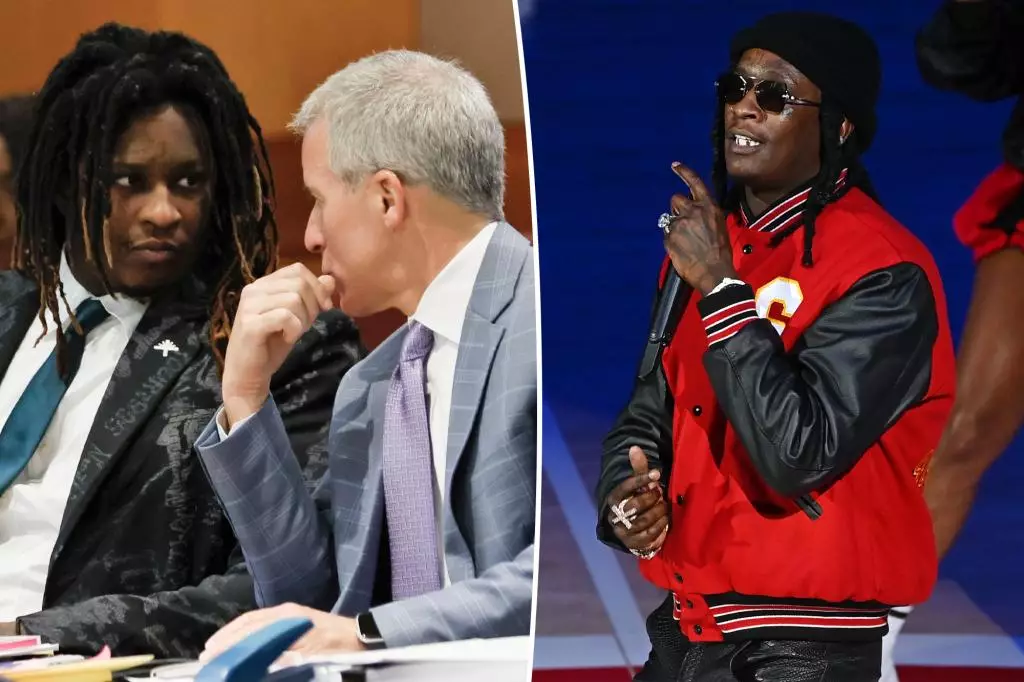On a Thursday in recent news, prominent rapper Young Thug, whose real name is Jeffery Lamar Williams, accepted a plea deal that has effectively concluded Georgia’s longest criminal trial in history. This marked a significant turning point for the Grammy-winning artist, who has faced a multitude of charges, including drug offenses and gang-related activities. After more than two years of incarceration, Young Thug’s acceptance of the plea deal reveals not only the pressures that accompany celebrity status but also the intricacies of navigating a legal system that often targets high-profile individuals.
Details of the Plea Deal
Under the terms of his plea agreement, Young Thug pleaded guilty to a series of charges: three related to drug offenses, two concerning firearms, and one gang charge. In addition, he entered a no contest plea on another gang-related accusation and a racketeering charge. The consequences of this deal are significant—he faces 15 years of probation instead of a potential maximum prison sentence of 120 years if found guilty on all counts.
The stipulations of his probation are quite restrictive, demanding that he stay out of the Atlanta metropolitan area for the first decade of his probation, only returning for major life events like funerals or weddings. Moreover, he must also conduct anti-gang and anti-gun presentations within Atlanta several times each year, highlighting a shift from simply facing legal repercussions to actively participating in community reform initiatives.
For Young Thug, whose fame soared after his debut in 2013 with Gucci Mane’s 1017 Records, the implications of this legal battle extend beyond the courtroom. In 2019, he earned significant acclaim, including a Grammy for his songwriting contributions on Childish Gambino’s “This Is America.” However, the allegations of gang leadership and violent crime tarnish his public image, complicating how fans and the industry view him moving forward.
The rapper’s association with the Young Slime Life gang—prosecutors argue it aligns with his own record label, Young Stoner Life—casts a shadow over his artistic identity. The trial, which has already seen the majority of co-defendants take plea deals, raises questions about the authenticity of artists who express street credibility while simultaneously grappling with serious legal issues.
As Young Thug moves toward fulfilling his probationary obligations, the challenges ahead are multifaceted. Beyond merely serving time, he must work to rehabilitate both his personal life and professional career, navigating a path that reconciles his artistic ambitions with the constraints of his legal troubles. His commitment to community service and gun violence prevention may help reshape his narrative, offering a chance for redemption.
Young Thug’s plea deal is not just a conclusion to a protracted legal saga; it opens a new chapter in his life that will require growth, reflection, and community engagement. The music industry will be keenly watching whether he can transform this adversity into a beacon of hope for many facing similar struggles while ensuring that his artistic legacy survives unscathed.
